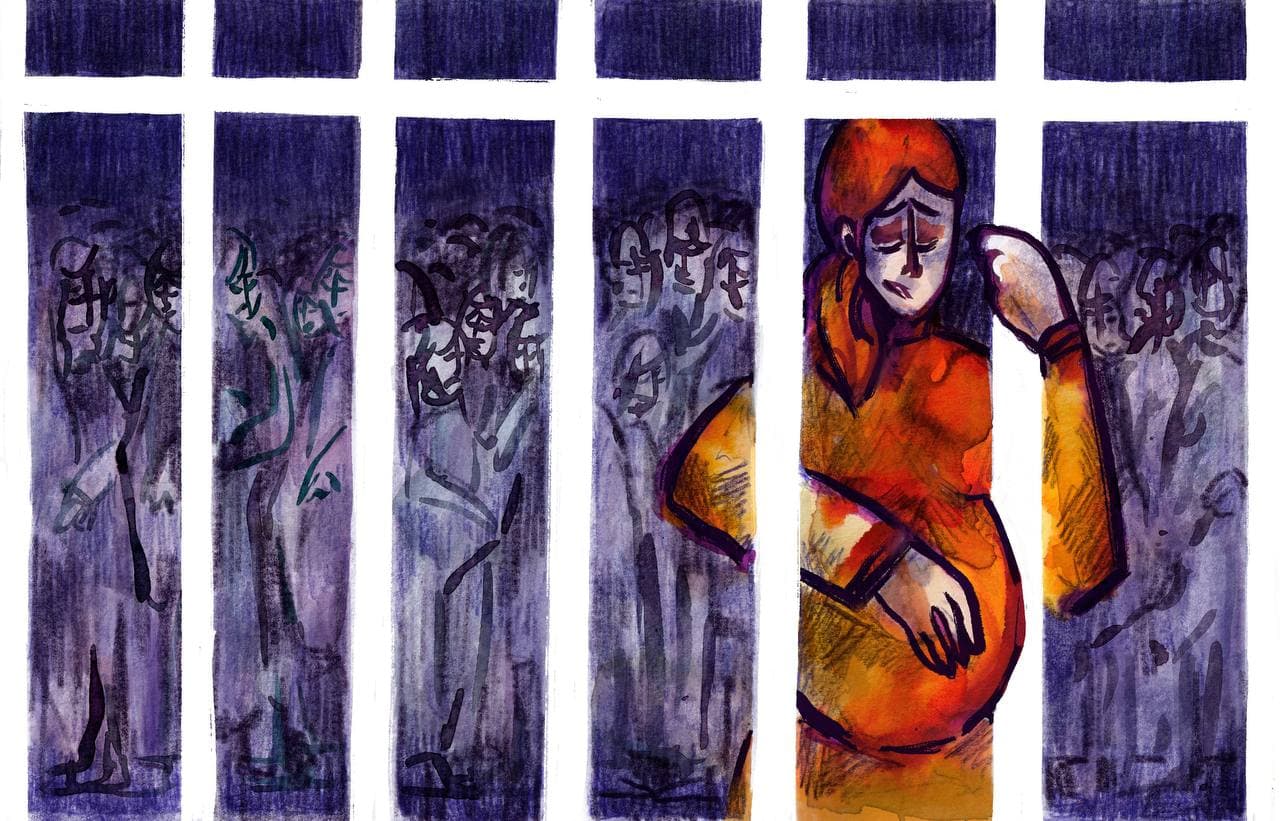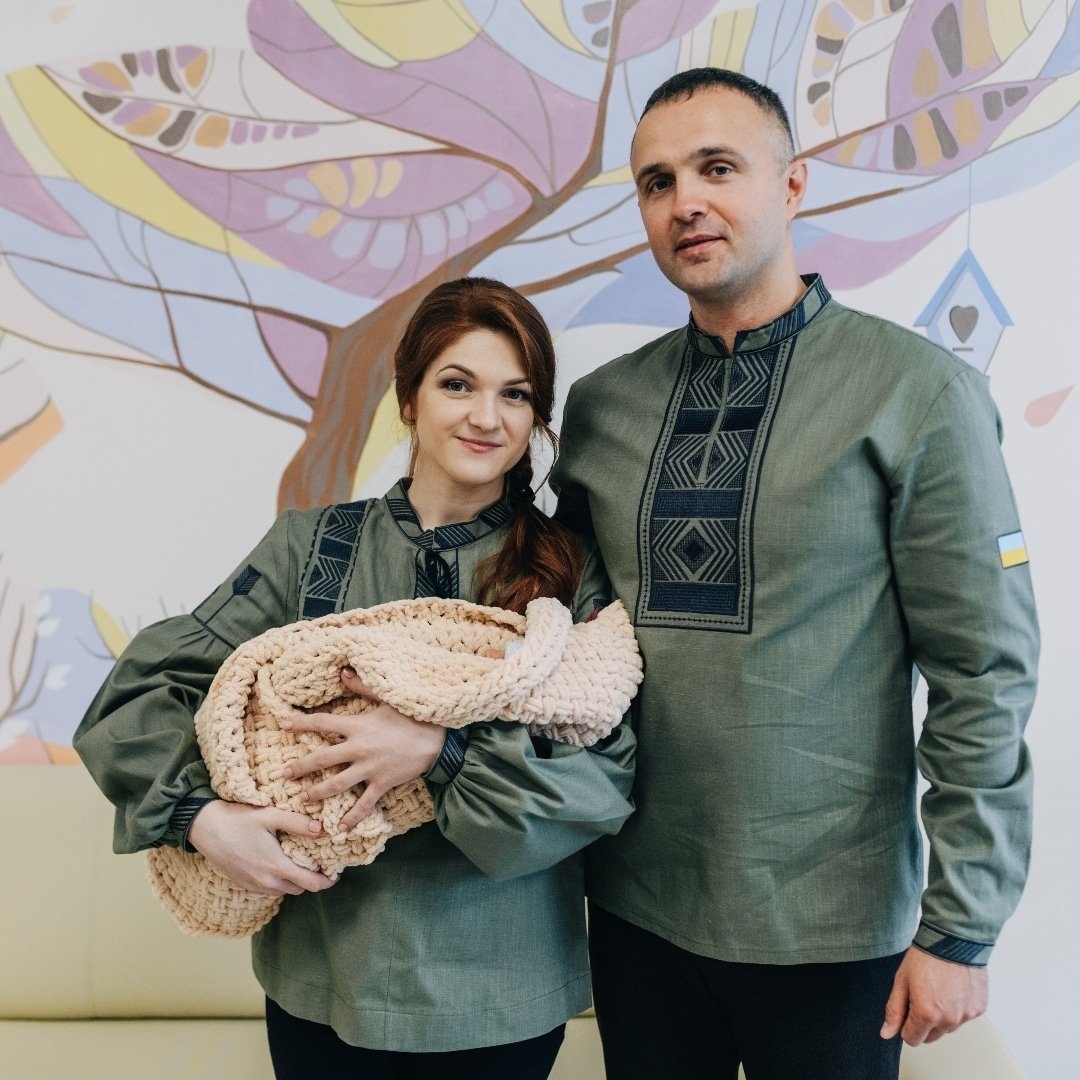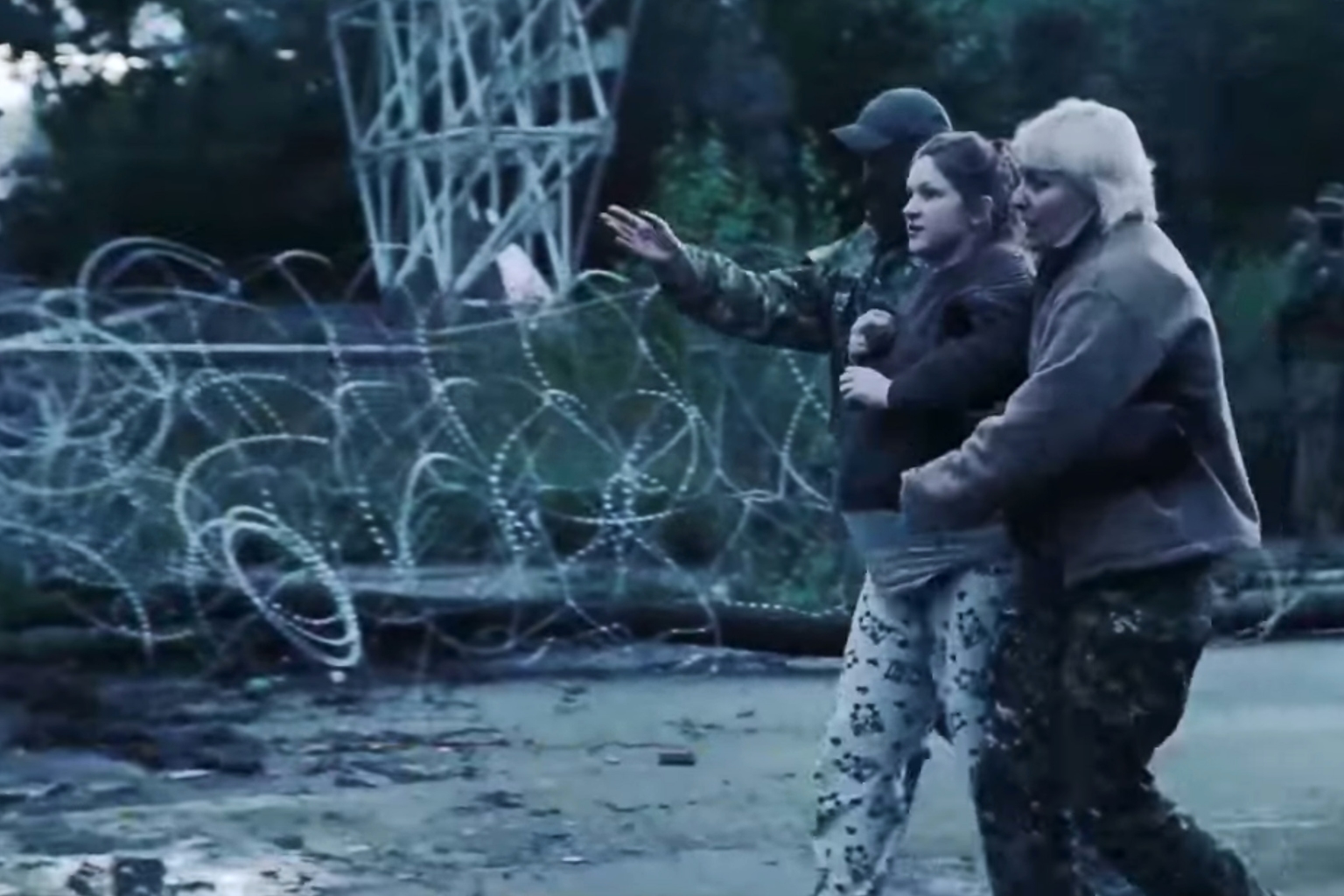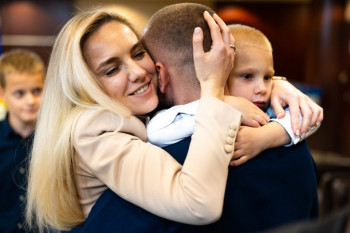Pregnant medic spent 5 months in Russian captivity: 'I feared they would take my child away'

Days before giving birth to her first child, Ukrainian military medic Mariana Mamonova was made to board a plane in the Russian city of Taganrog. She was blindfolded, and her hands were bound with rope.
“Do you know where they’re taking us?” she heard a man sitting next to her ask.
There were dozens of Ukrainian prisoners of war also aboard the plane, although none of them seemed to know their destination.
Many feared they would be transferred to prisons in remote parts of Russia, but their questions were soon answered by a Russian officer.
“Home,” Mamonova responded. “We’re going home.”
She had waited five long months for that very moment.
A medical service captain with the 36th Separate Marine Brigade, Mamonova, 31, was captured alongside fellow Ukrainian soldiers by Russian troops during a combat mission in Mariupol in early April – nearly three weeks after she learned about her pregnancy.
Russian troops locked Mamonova in a prison camp in Olenivka, Donetsk Oblast, where she said she witnessed what is believed to have been a Russian attack that killed over 50 Ukrainian POWs in late July.
Mamonova shared a small, decrepit prison cell with 40 other women and was forced to sleep on the cold floor under one of the bunk beds with nothing but a thin blanket. She said Russian soldiers interrogated her multiple times, threatening to take her baby from her.
She froze and starved in captivity, but she did not lose hope.
“I promised my baby that I wouldn’t cry – and I didn’t cry until the end,” Mamonova said.
She kept her promise. Tears rolled down Mamonova’s face in late September when she arrived in Chernihiv Oblast, a region in Ukraine bordering Russia and Belarus. She had undertaken a 20-hour-long journey from occupied Donetsk to Russia, then to Belarus and finally Chernihiv Oblast.
She was among the 215 Ukrainian defenders released from Russian captivity during a major prisoner exchange on Sept. 21.
Four days after she returned to Ukraine, Mamonova gave birth to a healthy baby girl named Anna. President Volodymyr Zelensky congratulated her and her newborn in a video address.
“This is more proof that life always triumphs over any evil,” Zelensky said. “And evil under the Russian flag is no exception to this rule.”

New life amid war
Mamonova and her husband, Lviv-based lawyer Vasyl Mamonov, had planned to have a baby for a while.
The couple met in Mariupol, Mamonov’s hometown, in 2020 and got married the following year. While they got accustomed to a long-distance relationship, Mamonova said she had wanted to transfer from Ukraine’s east to Lviv to be closer to her husband.
But Russia interrupted her plans.
By Feb. 24, Mamonova’s battalion had already taken up battle position in the village of Shyrokyne, Donetsk Oblast, facing heavy attacks from the Russian army.
"There was nowhere to hide," she recalled. "We were covering each other with body armor and helmets and huddled together when the ground shook."
Throughout those brutal strikes, Mamonova saved lives as she evacuated wounded soldiers from the battlefield.
Her battalion moved to Mariupol, Donetsk Oblast, in early March, stationing at one of the city’s giant metallurgical enterprises, the Illich Steel and Iron Works plant. Like the Azovstal steel plant, which had been Ukraine’s last stronghold in Mariupol, civilians and soldiers took shelter in the “bunkers” of the Illich plant.
"It was bombarded more intensively every day, usually from aviation," Mamonova said.
She said the hardest part was losing soldiers that she knew. She recalled one moment when a young soldier who was dying asked her not to tell his mother that he was injured but to reassure her that he was doing well.
“His mother called when his dead body lay in my arms,” Mamonova said. “She called and called, but we couldn’t pick up.”
In Mariupol, surrounded by death, pain, and destruction, Mamonova realized that a new life was growing inside of her – but instead of happiness, she felt fear.
“I knew I had nowhere to go, nowhere to run, no one to ask for help,” she said.
Mamonova did not tell her husband about the pregnancy, as she feared that losing both his wife and child would be “beyond difficult.”
It was not death that Mamonova feared the most, but Russian captivity.
While working in the military, she had heard many stories of Russian soldiers torturing, beating, and raping women taken prisoner.
So when the full-scale war started, she asked a fellow medic to kill her if Russian soldiers captured them.
'No mercy'
One late night in early April, Mamonova and some Ukrainian soldiers were driving on the outskirts of Mariupol when a dozen Russian soldiers stopped their car.
“Hello, comrades. From now on, you are prisoners of war of the Russian Federation,” one of the soldiers said.
Mamonova’s heart hammered in her chest as Russian troops started to remove her helmet and armored vest, pointing their guns at them.
"If you decide to run, you will be shot dead immediately," one Russian soldier said. "In captivity, you have at least some chance of survival. If you die here, your relatives won't find your body."
“You realize your life could end in a split second,” Mamonova said. “The soldiers standing next to you won’t help you. You won’t help them. That’s it, that’s the end…”
For the next three days, the Russian troops locked them in a former grain depot outside Mariupol before transferring them to a prison located around three kilometers east of Olenivka. Since the area fell under Russian occupation in 2014, it has also been used as an internment camp.

Mamonova recalled the squalid conditions of the prison, which she said had "barbed wire, three high fences so that you don't run away, and mad dogs."
"Its old cells were not heated. We had to sleep on a cold concrete floor," Mamonova added.
It was in those horrific conditions that she felt her baby kicking for the first time.
Mamonova spent the first two months in a cell with 40 other women – Ukrainian POWs from the National Guard, State Border Service, the Azov regiment, and civilians.
She said the cell was meant to fit six people, so there were three women to a single bed, and others were forced to sleep on small benches, a table, or near the toilet.
Russian soldiers only let them take a shower three weeks after they arrived. A month after she was captured, Mamonova was taken outside for the first time “in a cage, from which you can only see the sky” for 10 minutes.
She said she was starving, having only been given the same tasteless porridge and soup each day.
“It was like a Nazi concentration camp,” she said. “People who are convicted of certain crimes know when they will get out, but prisoners of war don’t.”
Soon, the interrogations started.
Mamonova said she was asked questions wrought by Russian propaganda, such as why Ukraine “attacked” Donbas in 2014 and why Ukraine does not want to rejoin the Soviet Union. Russian soldiers also threatened to transfer her to a prison in Russia.
They also threatened to take her unborn child to a Russian orphanage, where Mamonova would never find her.
While she was not physically tortured, she heard that Ukrainian soldiers were severely beaten. Russian guards also told her that they were “kind” as compared to those guarding the pre-trial detention centers in occupied Donetsk. The guards said that in occupied Donetsk, Ukrainian women are guarded by Russian women who “know no mercy.”
Witnessing the Olenivka explosion
The horrors she endured during Russian captivity escalated on July 28 when Mamonova heard two loud explosions nearby.
“It happened nearly 500 meters from where I was kept,” she said.
The soldiers guarding the women left for the site immediately. “Nothing was left of your boys there,” they told the POWs when they returned.
Russian proxies occupying the area immediately accused Ukraine of attacking its own soldiers in captivity, claiming U.S.-provided high-precision HIMARS had hit the site. Ukraine denied the allegations. According to Ukraine’s Prosecutor General’s Office, Russia likely used a thermobaric munition at the Olenivka prison, killing over 50 prisoners of war.
Mamonova said the Russian guards had initially agreed that it was a Ukrainian attack but soon said it was “something from inside.”
Since the day of the explosion, she feared it could happen to her as well.
In spite of her hardships, Mamonova felt that her baby was growing strong and healthy. Because her due date was approaching, she was transferred to a hospital in occupied Donetsk in August.
While she was treated well at the hospital and was given enough food and medicine, she was petrified at the thought of giving birth in captivity.
“I feared they would take my child to some orphanage and transfer me elsewhere,” she said. “And then, if they take me for a (prisoner) exchange, no one will return my baby to me.”
She hoped she would be released during a rumored prisoner exchange on Aug. 24, but she was not. She again grew hopeful in late September when a Russian officer asked Mamonova’s doctor if she could be transported in her condition.
As she was taken from Donetsk to Taganrog to board a plane, Mamonova kept telling the Russian officer that she would give birth on the spot if he didn’t tell her where they were going.
“He told me: Don’t worry, Mariana, you’re going home.”

Days after Mamonova was finally exchanged, the happiness she felt at her release was overcome by a greater one: the birth of her baby girl Anna.
Mamonova said that one day, she will tell her daughter the story about captivity. But for now, she only wants her to grow up happy “in a peaceful country.”
After everything Mamonova has been through, she said she would return to service in her battalion.
"Even in Olenivka, I did not regret anything," she says. "Because we saved a lot of lives, a lot of soldiers. So it was all worth it."
____________________
Note from the author:
Hi! Daria Shulzhenko here. I wrote this piece for you.
Ever since the first day of Russia's all-out war, I have been working almost non-stop to tell the stories of those affected by Russia’s brutal aggression. By telling all those painful stories, we are helping to keep the world informed about the reality of Russia’s war against Ukraine. By becoming the Kyiv Independent's patron, you can help us continue telling the world the truth about this war.










